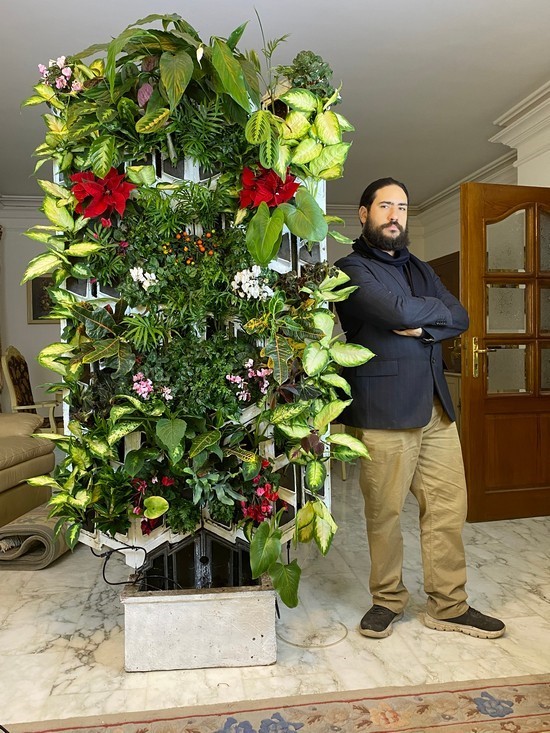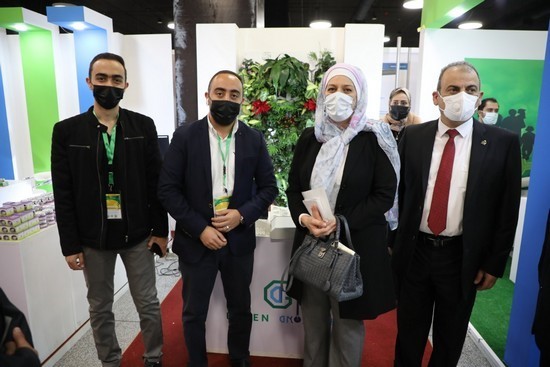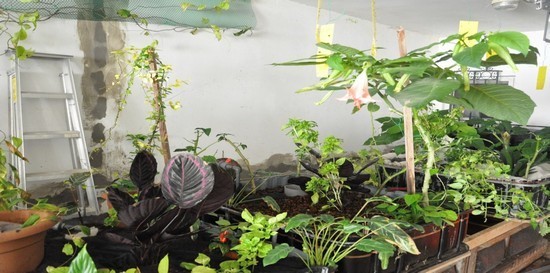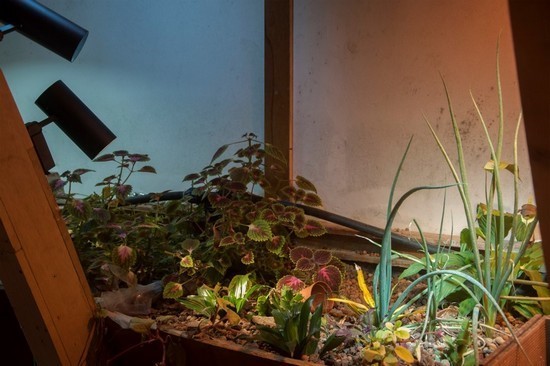Have
you picked up gardening as a hobby during lockdown? Daydreaming of reaping your
fresh tomatoes and kale day by day? Tired of grocery plastic-wrapped vegetables? Love gardening but despise getting
your hands dirty?
اضافة اعلان
Green On, a
social enterprise, found an answer to each of these questions by developing ready-to-grow,
LEGO-like comprehensive kits that can
be micro-implemented in households and customized to the medium, end
users are accustomed to.
 Saeed Albawab, Green On
Saeed Albawab, Green On’s founder and an architect, wanted to employ the aesthetics
of aquaponics into his work in architecture.
“Because
nature is vast and abundant in resources, there was a need to integrate both
its aesthetics and function in architecture,” Albawab said about innovative
architecture and design stepping in to revolutionize indoor farming for urban
spaces.
Albawab continuous research influenced him to take up aquaponics as a hobby in 2014; he
bought simple equipment sets to work on a prototype in his garage. He then moved to
Saudi Arabia in a small apartment
where he felt something was lacking in the atmosphere, which prompted him to build his own advanced system, using
laser-cut glass which he installed in his
living room.
He
came to know that aquaponics is a process that brings to the table more
than one profession. While the system fulfilled his needs
and his guests praised the overall aesthetic, the down side was, it cost a fortune. “Not everyone can afford it, but everyone
should have it,” he said.

Green On’s systems are
constructive contributions to the sustainability movement, redefining luxury as
something that embodies the product's social and environmental credentials.
“We want to include
end-users in a beautiful, productive and sustainable lifestyle without making
sustainability too centric and affronting. As a matter of fact, they not only
contribute to protecting the environment, they also do their lungs a favor by breathing
cleaner air,” he said.
The products are a solution to the problem of urban sprawl, reversing the effect of residential complexes crawling over the arable land and forcing the agri-viable lands to crawl back over the cities.
Furthermore, they reduce
the time between harvest and consumption, subsequently boosting the nutritional
value of the end product.
The products are a
solution to the problem of urban sprawl, reversing the effect of residential complexes
crawling over the arable land and forcing the agri-viable lands to crawl back
over the cities. They also signal a paradigm shift in food security as “vegetable
crop yields are being transported to the city-based aquaponics, allowing farmers
to focus more on staple foods like wheat, and by doing so, promoting
interdependence between farmers and citizens while also feeding the growing
urban populations,” Albawab elaborated.

Green
On's aquaponics are the ideal alternative for those with living arrangement
constraints, since they do not interfere with people's use of space and do not
compromise the overall design style.
There
are several high-quality products in development, yet their
Green Wall is the
jewel of their products. It is a DIY, step-by-step, system of interlocking blocks
that enables the user to design any aquaponics, hydroponics or traditional
farming, making up an architectural wall without the use of installation
equipment, making gardening attainable to anyone who wants to make it a part of
their life.

The
startup has been supported by several donors over different intervals, the
latest of which is
Oxfam, through the EU-funded project JOin UP.
“Oxfam’s
support has been able to drive our final product forward by building our manufacturing capacity and
contributing to the production lines and equipment,” said Albawab.
Operating
in a startup which combines manufacturing and agriculture was challenging, he
said, made them “feel the heat of both industries”. He also spoke of the
difficulty of fully manufacturing in Jordan.
“As
Green On expanded, we wanted to provide people the opportunity to learn,
evolve, and grow, and indirectly ensure that the money spent leads back to the
local economy,” Albawab concluded.
As Green On moves on to its next phase, it helps people turn a corner
and never come back to buying old and withered vegetables.
Read more Entrepreneurship
Jordan News





